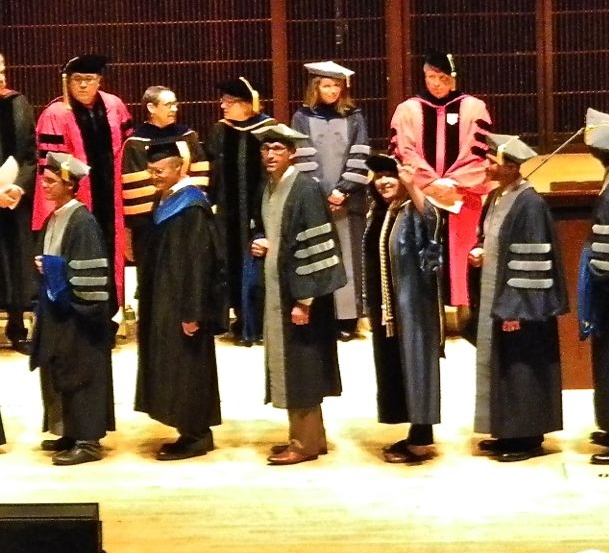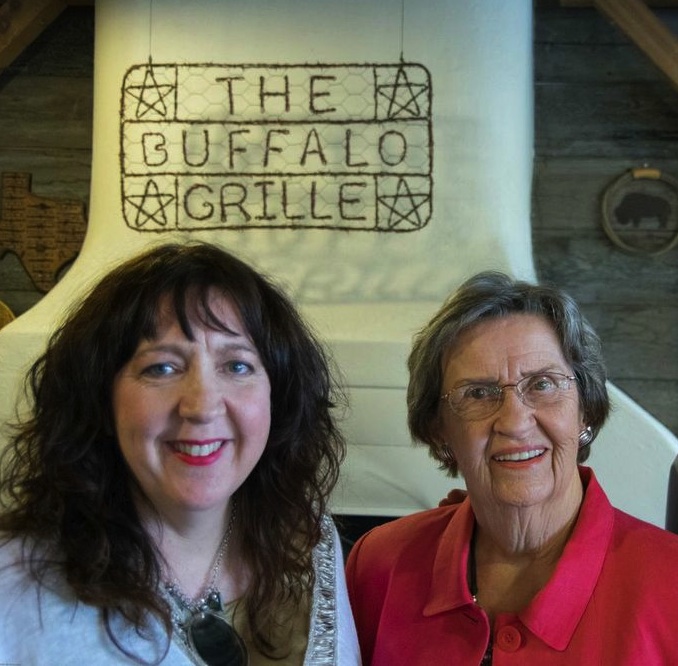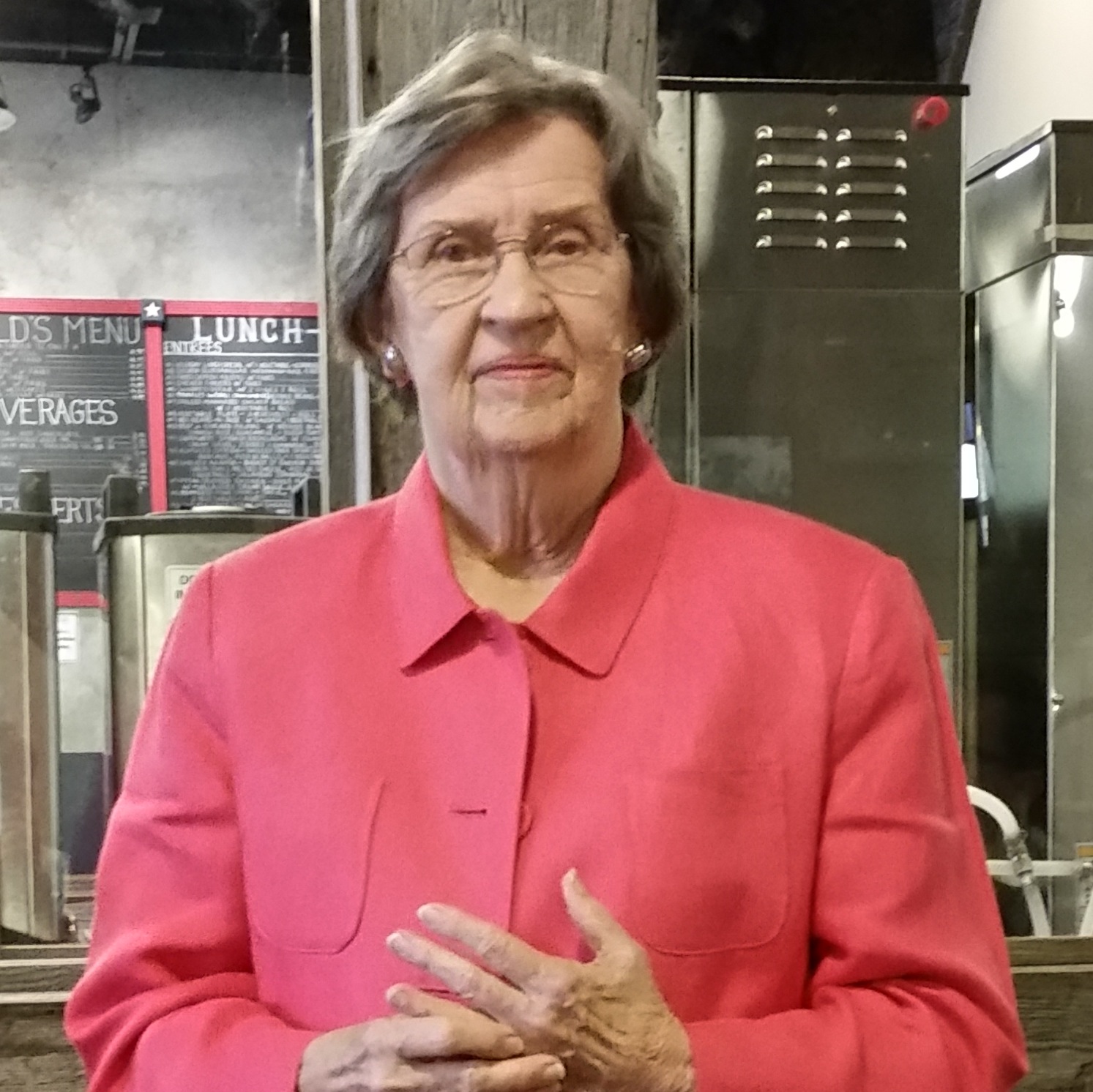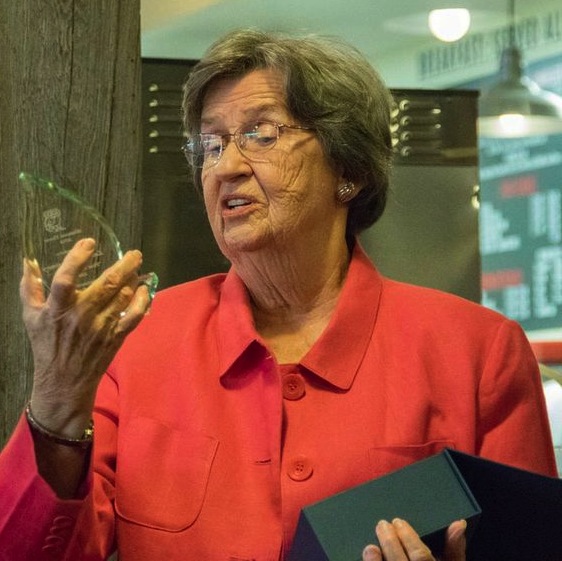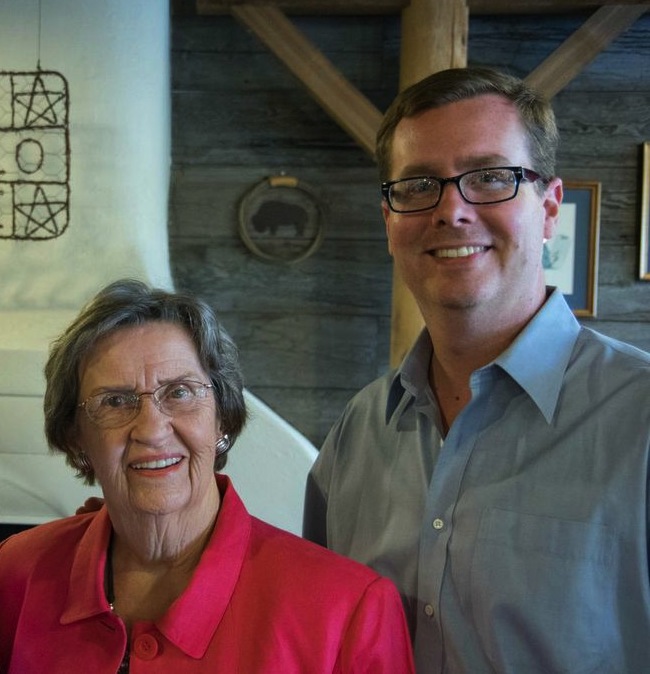This year the Center for the Study of Women, Gender and Sexuality hosted a symposium and exhibition "The Women of Rice: Our Legacy and Labor". This event launched a campus-wide initiative to document and archive the contributions women have made and continue to make a Rice. To this end, the Religious Studies Department is honoring Leonora Montgomery, the first woman to graduate from our program with a PhD.
In the 1940s and 50s, when she would have been the age of a typical graduate student, she was not in graduate school. Admittance to PhD programs for women at this time was very limited and rare. But Dr. Montgomery did it anyway, just later. She entered our graduate program in 1974 and graduated in 1984. She worked with Professors Sellers, Nielsen and Martin. Her dissertation title is: "The Ethical Imperatives which Emerge from a Theological Perspective on Disintegration at the End of Life." She was 61. But this is only the beginning. A year later she was ordained as a Unitarian Universalist minister. She did not stay local. She became an international pastor, serving five english-speaking churches in Brussels, Amsterdam, Paris, Wiesbaden and Heidelberg. After serving abroad, she returned to the Houston and served three local churches. She retired from the Bay Area Unitarian Universalist Church. She has served on the Board of Meadville Lombard Theological School, the Roman Catholic Ecumenical Commission, the Wellesley College Unitarian Universalist Chaplaincy Advisory Board, and on several boards of Houston's social service agencies. She was awarded an honorary doctorate from Meadville Lombard in 2012 for her dedication and service to the Unitarian Universalist faith.
So congratulations Dr. Montgomery. And also to our new doctors of philosophy:
a. Grant Adamson, Christ Incarnate: How Ancient Minds Conceived the Son of God: mentor: April DeConick
b. Dustin Atlas, Out of the In-Between: Moses Mendelssohn & Martin Buber’s German Jewish Philosophy of Encounter, Singularity, & Aesthetics: mentor, Jeff Kripal
c. Daniel Brubaker, Intentional Changes in Qur’an Manuscripts; mentor: David Cook
d. Jonathan Chism, “The Saints Go Marching”: An Analysis of Political Protest Activism among Pentecostals in the Church of God in Christ in Memphis Tennessee, 1955-1968; mentor: Anthony Pinn
e. Enoch Gbadegesin, Comparative Analysis of Gift Exchange among a Pentecostal Christian Denomination and an Indigenous Religious Tradition in Ile-Ife, Nigeria; mentor: Elias Bongmba
f. Chad Pevateaux, What Mystics May Come: Forming more Perfect Unions from Pragmatism to Posthumanism; mentor: Jeff Kripal
g. Franklin Trammell, (Re)growing the Tree: Early Christian Mysticism, Angelomorphic Identity and the Shepherd of Hermas; mentor: April DeConick



















































































